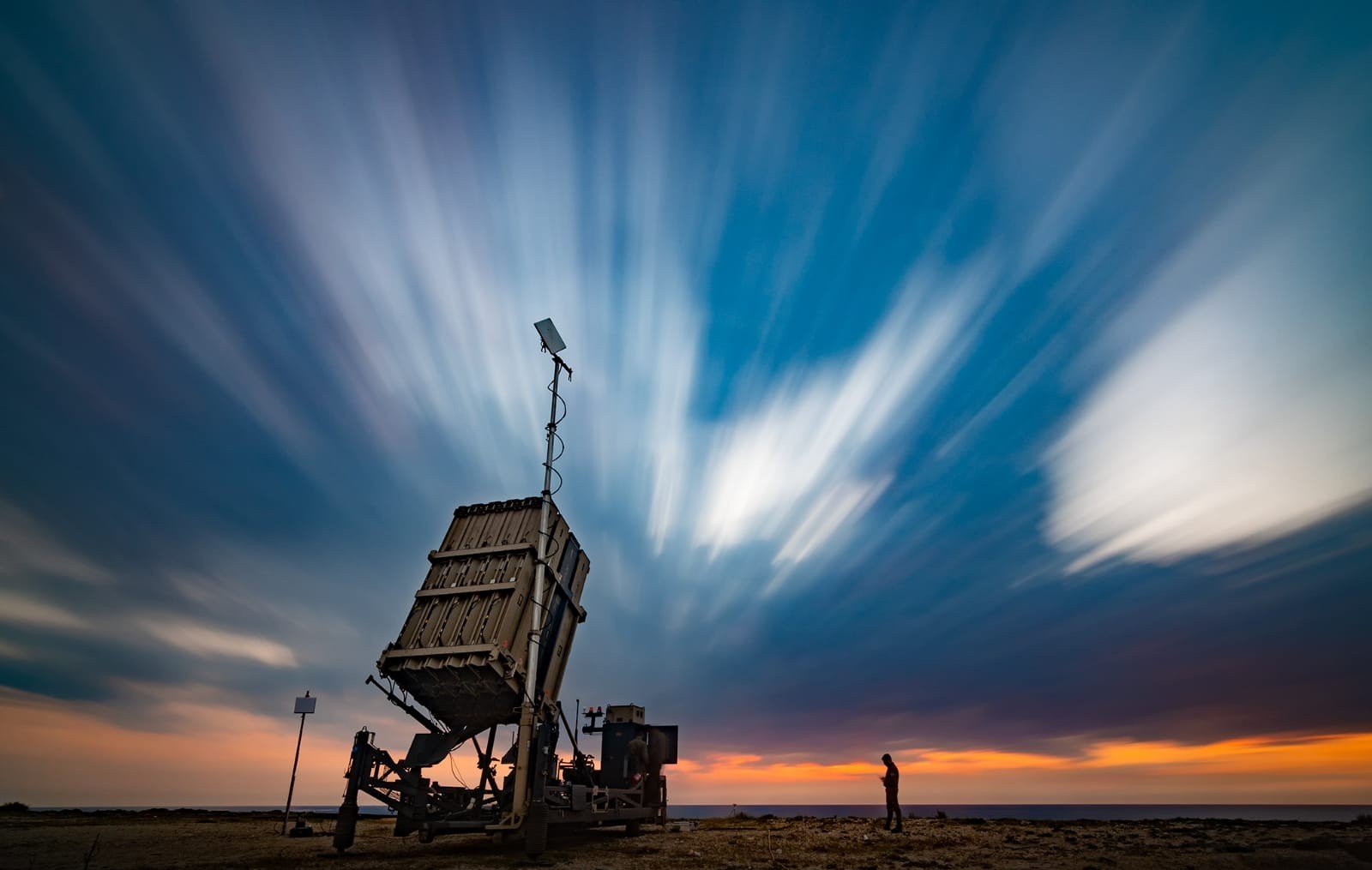As the Israel-Hamas conflict intensifies, the United States is reportedly preparing to return the two Iron Dome missile defense systems it acquired from Israel.
On October 19, Reuters reported that during a briefing with members of Congress on October 18, the Department of Defense conveyed its plan to lease the Iron Dome systems back to Israel.
The report, citing sources, added, “In this type of financial arrangement, the ownership remains with the buyer.” The prospect is that this transfer may occur within a concise timeframe, possibly in just a few days.
However, the Pentagon refrained from confirming to Reuters. Still, one Israeli and a US official verified to the American news outlet Axios that the United States is sending two Iron Dome systems back to Israel.
Furthermore, the shipment will comprise the hardware, with operational responsibilities designated to Israeli teams rather than US operators.

Israeli officials reportedly requested additional batteries during the visit of Secretary of State Tony Blinken and Secretary of Defense Lloyd Austin to Israel.
In response to the Hamas terrorist attack on October 7, US lawmakers also previously called for Defense Secretary Lloyd Austin to facilitate the return of two Iron Dome batteries to Israel, apart from Israel.
In a letter dated October 10 to the Defense Secretary, a bipartisan group of senators articulated concern, highlighting the critical need for Israel to bolster its missile defense capabilities to safeguard its citizens and territory.
“As you know, the United States Army is currently in possession of two Iron Dome batteries that have not been deployed and have no operational use inside the United States where they are currently stored,” they wrote.
“Immediately transferring these two Iron Dome batteries that are not in use to Israel would provide tangible, life-saving, and sustained support to our ally as it faces rocket and missile salvos that threaten to overwhelm its defenses,” the US Lawmakers noted.
Israel’s Iron Dome System
The Israeli firm Rafael Advanced Defense Systems developed the Iron Dome with support from the United States. The system has been pivotal in safeguarding Israeli cities from rocket attacks from militant groups in Gaza and Lebanon.
Its effectiveness is evident in its track record of intercepting thousands of rockets and other short-range projectiles, mitigating the threat to densely populated areas within Israel.
In the past few days, the US government has been notably committed to enhancing Israel’s defense capabilities.
On October 19, Pentagon Press Secretary Air Force Brig. Gen. Pat Ryder confirmed that Iron Dome interceptors from US stockpiles had been delivered to Israel. This reinforcement aims to bolster Israel’s capacity to intercept rockets launched by Hamas.
Moreover, he indicated that additional Iron Dome interceptors would be supplied in the coming days to ensure that Israel possesses the necessary capabilities to maintain their Iron Dome Defense Systems, effectively safeguarding their citizens and urban centers from rocket attacks.
Similarly, President Biden pledged to replenish the interceptors utilized by Israel’s Iron Dome missile defense system and supply additional ammunition.
The prospective decision to transfer two batteries also appears to align with the United States’ commitment to support Israel’s defense.
The battery units will strengthen Israel’s defense capabilities, with increasing apprehension that the conflict might spill into a new theater, notably the Israel-Lebanon border, where tensions are rising.
If the escalating conflict with Hamas in Gaza were to escalate into a wider regional war, the Iron Dome system could be overwhelmed by missile attacks.
Like any air defense system, the Iron Dome depends on having an ample supply of interceptor missiles and can be overwhelmed if the scale of the incoming assault is substantial.

This scenario became all too real on October 7 when Hamas launched a surprise attack, raining down a staggering 3,000 rockets in the first 20 minutes.
A mere dip in the Iron Dome’s interception rate would significantly increase the number of rockets slipping through should Hamas or other groups initiate another intense assault.
Compounding this concern is that Hezbollah is believed to have around 40,000 to 150,000 missiles and rockets at its disposal. Many experts view the combination of a massive offensive and the potential reduction in the Iron Dome’s efficacy as a realistic scenario.
Thus, the decision to return the Iron Dome systems to Israel will likely be an effective strategy. It will enable Israel to strategically deploy these systems in areas where the rocket threat is expected to be exceptionally high, proving prudent to enhance their defensive capabilities.
- Contact the author at ashishmichel(at)gmail.com
- Follow EurAsian Times on Google News




